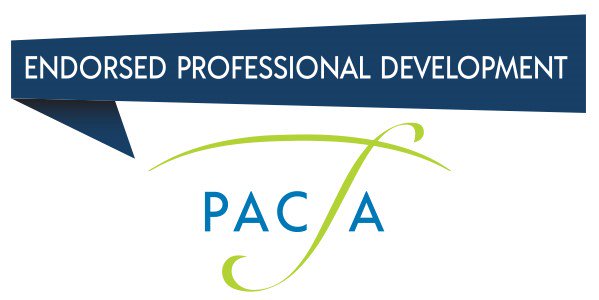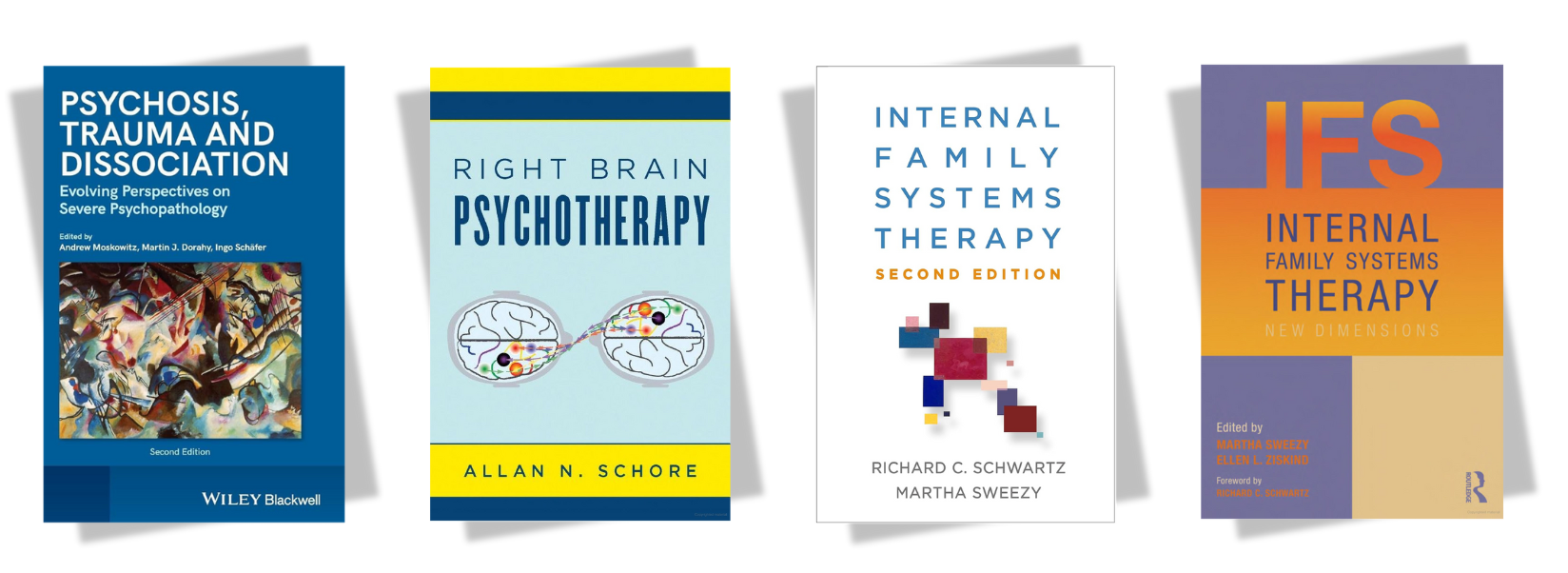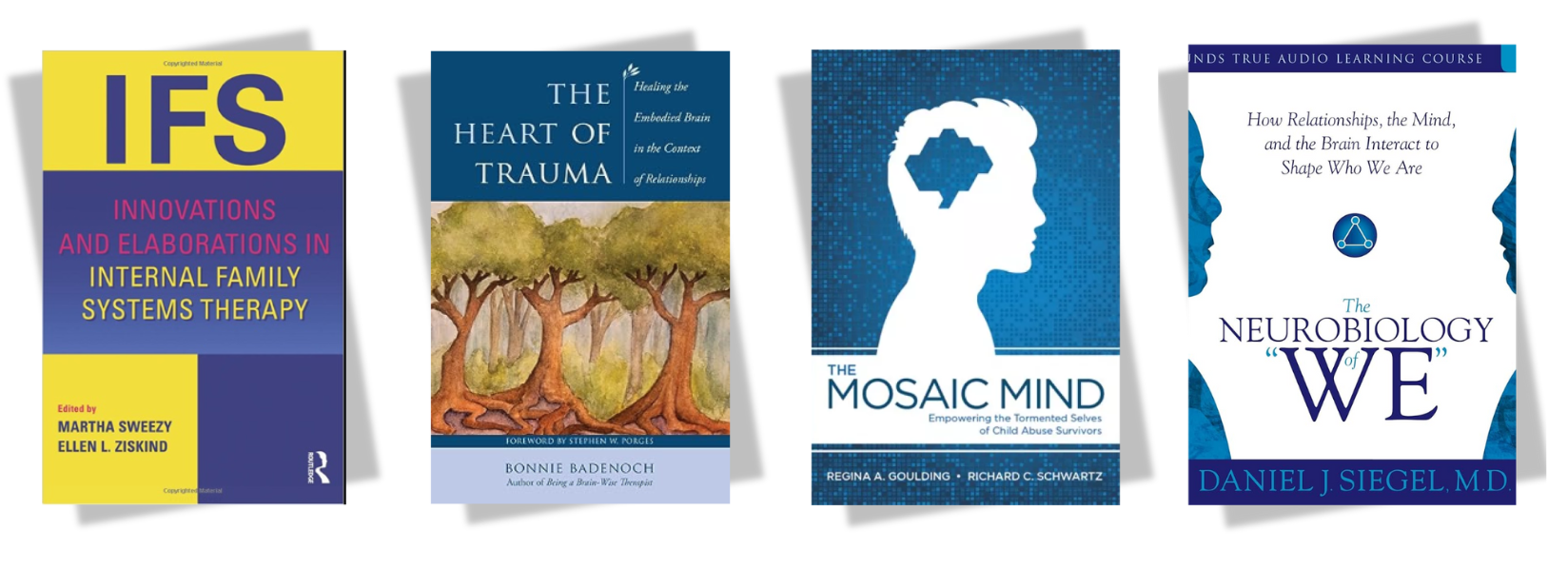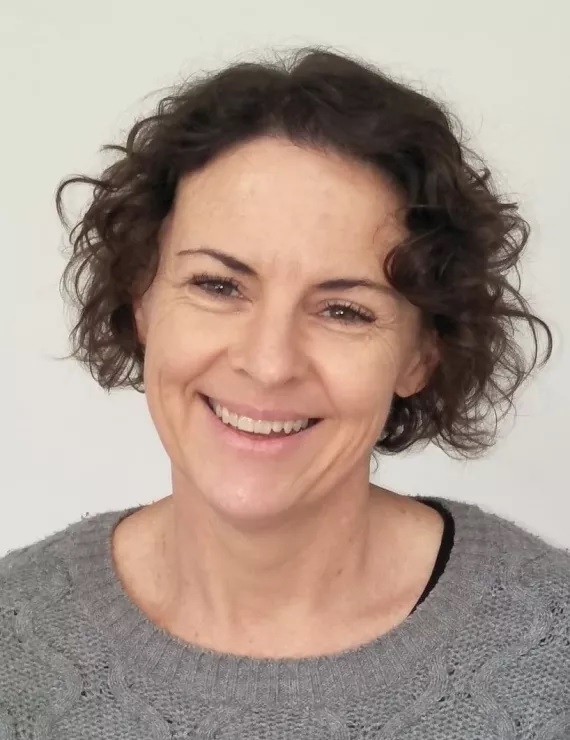Nuance and Attunement
in the IFS Model
US friendly time
An Interpersonal Neurobiologically Informed Approach to working with Relational Trauma
- Would you like to learn nuanced skills in IFS for clients who ‘can’t go inside’, get easily dysregulated, or those who have many parts jumping in, one after another during sessions?
- Would you like to feel more Self-Led when working with clients who use a lot of transference and projection in the therapeutic space?
- Are you a therapist or practitioner already familiar with the basics of the IFS model and would like more skills for working with complex shame, preverbal trauma and highly polarised systems?
Are you ready to take a deep dive into a more
RELATIONAL APPROACH to IFS?



This unique course offers a deep dive into the skills of IFS from a psychotherapeutic standpoint.
This course is exclusively focused on attunement and skill building within the IFS Model, drawing on the research of Interpersonal Neurobiology we look at how we can create safety for clients with early attachment wounding, complex trauma, and other highly polarised systems
Course Content
21 hours of contact time and structured practice groups, video content, and written resources to enhance your learning between sessions.
Structure of the course
7 x 3 hour workshops comprised of didactic teaching, experiential exercises, demos, videos and Q&A
Location
Online
Australian times
Tuesday Mornings Fortnightly
over 14 weeks.
-
DATES 2024
3rd, 17th Sept 2024
1st, 15th, 29th Oct 2024
12th, 26th Nov 2024
-
TIMES
9am - 12pm AEST (Brisbane Australia)
-
Please note Australian Day Light Savings time change on 6th of October.
NSW, Victoria etc. will start an hour later (10am) for the duration of the training from 6th of October.
North American times
Monday Evenings Fortnightly
over 14 weeks.
-
DATES 2024
2nd, 16th, 30th Sept 2024
14th, 28th Oct 2024
11th, 25th Nov 2024
-
TIMES
7pm - 10pm EDT (New York)
4pm - 7pm PDT (Oregon) -
Please note North American Day Light Savings time change on 3rd of November.
NY, Oregon and other states that adhere to DLS, will start an hour earlier for the duration of the training from 3rd November.
This will make the times for the last 4 weeks 6pm-9pm EST and 3pm-6pm PST
Cost
Early Bird (before August 7th 2024)
- $997 AUD + booking fees
- Approx $659 USD + booking fees
Regual Price (after August 7th 2024)
- $1100 AUD + booking fees
- Approx $727 USD + booking fees
Location
Online Event
About this Course
Gain an understanding of working with complex systems including protectors who need more time before stepping back and systems with significant internal conflict, including those diagnosed with BPD and Schizophrenia, eating disorder, addictions and those with tenacious spiritual bypassing parts.
Overview:
Working with clients who are new to IFS and
‘can't go inside’
-
Listening to what is under what is being said
-
Attending to Languaging – yours and the clients
-
Learn to seamlessly move from Implicit Direct Access to Insight and back, in the therapeutic dance of the relational space.
Recognizing and working with shame in clients with complex trauma
-
Understanding right brain to right brain attunement in the IFS Model
-
Use of the therapists Self energy as a resource for co-regulation in the early stages of the work
-
Utilise the relational space that is inherent in all therapy, from an IFS perspective
-
Learn attunement skill for attending to different types of clients (e.g. clients who present as chaotic, depressed, angry, pleasing/good client, spiritual bypassing, avoidant etc).
-
Recognise and work with your parts who respond to certain populations of clients
Working with highly protected systems
-
Suicidal clients
-
Clients diagnosed with complex mental health disorders such as BPD or Schizophrenia
-
How to work with the whole system when a client cannot unblend enough to work with one part
-
Understand the pacing of the work and the importance of therapeutic container especially in relation to Interpersonal Neurobiology in the IFS healing process
-
Gain more relational connection between Self and Parts – understanding the whole cascade of parts involved in a sequence
Working with the body and pre-verbal parts
-
Gain an understand of the processes of implicit and explicit memory and how to work with clients who have ‘no explicit memory’
-
Working safely with fire fighters
-
Working with exiles safely
Understanding Transference and enactments with clients who have experienced relational trauma
-
Gain knowledge about Transference and Counter transference in the IFS Model
-
Gain understandings for how transferential enactments help the client to navigate their healing and build skills to approach these enactments with curiosity, compassion and courage
-
Work with your own parts who get activated
-
Deepen into working with process rather than content
-
Understanding and acknowledging co-transference
-
Learn skills in speaking for your parts with client
Bibliography:
Our core texts will be:
-
Understanding and treating chronic shame by Pat DeYoung
-
Becoming Attached by Robert Karen

These books can be purchased before you begin the course.
Other books we will use as resources include:
-
Right brain psychotherapy by Allan Schore (and other writing by Schore)
-
The Neurobiology of We by Dan Siegel
-
Psychosis, Trauma and Dissociation by Moskowitz et al. (available free online – you will be sent the relevant papers)
-
Healing the heart with the brain in mind by Bonnie Badenoch
-
Internal Family Systems Therapy 2nd Edition by Schwartz and Sweezy
-
The Mosaic Mind by Goulding and Schwartz
-
IFS: Innovations and Elaborations in Internal Family Systems Therapy by Sweezy and Ziskind
-
Internal Family Systems - New Dimensions by Sweezy and Ziskind
-
Depathologizing The Borderline Client - Learning to Manage Our Fears by Schwartz (and other IFS written resources)


Matthew Musgrave
ACT Australia
"Stephanie's authenticity is what sets her apart from all of the other trainers and supervisors that I've worked with. Stephanie is relatable, honest, and deeply committed to her own healing journey. That's the kind of person I've always sought to be in my corner - a person who's not afraid to roll up their sleeves and do the work alongside you. If you're looking for someone who's not solely focused on theories and techniques but who actually embodies the practice of personal growth and connection, Stephanie is the person you want to learn from."
Prior Student
CLIENT
"Stephanie models 'radical openness' in speaking for her experience and her parts. It allowed me to engage more in the training and felt like being able to embody what I was learning."
Prior Student
CLIENT
"Stephanie's way of holding the group and being present to each of us was a unique gift and provided such a deep experience for learning. Thank you so much Stephanie."
Who is this Workshop for:
Therapists, Psychologists, Counsellors, Social Workers as well as those seeking to do their own inner healing work.
Prerequisites:
Those who have completed Level 1 (or equivalent), and have begun using IFS with their clients.
(If you are an experienced therapist and have over 50-100 of your own personal IFS therapy with an IFS therapist or Practitioner, but have not been able to get into Level 1, you can also join this course. Graduates of Stepping Stones or equivalent may also apply).
Each module builds on the last and you will have access to reading and video material to watch/read between the bi-weekly workshops. These resources will continue to be available to you at the end of the course.
Each person will also be invited to participate in break out groups and to reflect on their own parts as part of the learning environment.
Each participant will be expected to work on with their own inner system during practical exercises. There are no ‘role-plays’ only ‘real-plays’.
Please note: This course is not affiliated with the Internal Family Systems Institute (IFSI) nor is it a substitute for nor equivalent to the IFS Institutes Level 1, 2 or 3 trainings. To become IFS certified, you must complete the IFS Institute's Level 1 training and complete the certification process.
What Will You Learn Each Week?
-
Week #1 : Interpersonal Neurobiology and right brained psychotherapy as they relate to IFS
-
Week #2: Mastering Implicit direct access – nuanced ways of working with clients new to IFS or those who ‘can’t go inside’ or say they ‘have no Self’ inside their system.
-
Week #3: Working with highly protected systems including those with obfuscating parts, ‘puppet masters’, parts who use psychosis or dissociation as a protective function
-
Week #4: Understanding the IFS approach to Window of Tolerance and self-regulation along with polyvagal approaches to co-regulation
-
Week #5: Learning about the wisdom of transference and how to work with clients whose parts use projection and enactment onto the therapist as part of their healing path.
-
Week #6: Working with systems saturated with shamed and shaming parts
-
Week #7: The Self-led therapist and the Self-led life – hope for full healing and harmonious inner and outer relationships
A little more about me...
My name is Stephanie Mitchell and I'm a
Certified Level 3 IFS Therapist working in private practice in Australia.
I specialise in working with complex trauma and experiences which often get labelled as 'mental illness'.
I'm interested in how healing and change occur in the human to human relationship, within spaces of relational safety and acceptance and outside the constructs of diagnostic labels.

I work exclusively in the IFS Model and have undertaken extensive training in IFS including 100+ hours with Richard Schwartz. I am passionate about working in highly nuanced and attuned ways within the Model. I bring these nuanced approaches to all my teaching.
Believing that a therapist can only take a client as far as they themselves have travelled I have undertaken over 650 hours of my own personal therapy in the IFS Model and I am deeply acquainted with my own parts, embodying the model from the inside out.
I am passionately committed to a Self-led life, where my parts trust me and I have the capacity for the all important You-turn that is the cornerstone of the IFS Model.
This approach is what I believe is the point of difference in my trainings as I bring a Self-led quality of Clarity, Connection, Compassion and Curiosity to the course, welcoming all parts of the student and being open to my own You-turns when necessary.
I have also undertaken extensive personal studies in shame, transference, relational psychotherapy, Interpersonal Neurobiology, and attachment theory, as I designed this course.
I began teaching about IFS for early developmental trauma in 2019 at the international conference “Re-Awaken” where I was one of the Keynote speakers.
Since then I have presented at the IFS Conference on IFS and experiences that get diagnosed as “psychosis”, along with teaching in the UK, Canada, Australia, US and Spain on using IFS with highly distressed clients - whatever their ‘diagnosis’ is,
I am also a passionate advocate and activist for social and systems change towards non-pathologising and compassionate approaches to mental distress and am involved at national and international levels around mental health reform.
This 14 week program includes:
-
Live online group training - 7 x 3 hours session on alternate weeks over 14 weeks
-
Experiential activities informed by Interpersonal Neurobiology, Relational Psychotherapy, and Psychodynamic principles as they apply to the IFS Model.
-
Between session reading and videos, including demos of client sessions showing skills learned in the group classes
-
Access to WhatsApp group for all the course participants to share questions, comments and resources - and to get technical help during live Zoom sessions.
-
Access to a member portal
-
Access to recordings for all teaching sessions
-
Eligible for up to 21 CE's from the IFS Institute towards certification or recertification!
-
This Course is eligible for up to 10 OPD points with ACA and counts towards 21 hours of category A CPD with PACFA
AUD$1100
ONE TIME PAYMENT

© Copyrights by Connection Heals. All Rights Reserved.